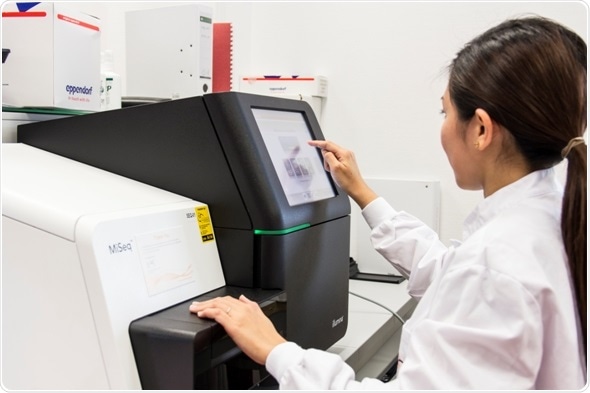Dec 23 2016
Further to a successful follow-up audit, IBBL (Integrated BioBank of Luxembourg) becomes the first biobank worldwide to be accredited for the next-generation 16S rRNA gene sequencing, a cutting-edge method that takes forward research into the human microbiome.

©IBBL
Approximately one year after issuing IBBL’s first accreditation, the Office Luxembourgeois d’Accréditation et de Surveillance (OLAS) confirmed its conformity with ISO 17025, a norm that specifies the general requirements for the competence of testing and calibration laboratories. In addition to its positive feedback, the OLAS also expanded the scope to four additional testing methods:
- DNA Cross-Linking Assessment
- Long-Range PCR
- Human sCD40L Quantification in Serum
- 16S rRNA Gene Sequencing
Whereas the first three assays were developed in house for the purpose of biospecimen quality control, the latter, unique for biobanks, is a characterisation method dedicated to provide the scientific microbiome community with accurate and comprehensive data.
In this particular case, the next-generation 16S rRNA gene sequencing consists of identifying not only one single bacteria but the whole set of bacteria within a given sample of any kind, be it saliva or stool to name a few. Scientists have therefore a reliable full-length insight at their disposal, which enables them to move forward with their research.
“IBBL makes history in the biobanking world. The accreditation for the next-generation 16S rRNA gene sequencing assures confidence that IBBL successfully fulfils its mission as a biobank. Above all, we are proud to contribute to a promising research area in which Luxembourg is very active”, commented Marc Vandelaer, CEO of IBBL.
This announcement comes two weeks after the biobank successfully passed its follow-up audits for ISO 9001 (general quality management) and NF S96-900 (quality of biological resource centres). “Reaching those milestones would have never been possible without the continuous commitment of the staff and the management in the quality system. I am confident that we will keep on optimising our procedures to help minimise bias in research and maximise the potential of the biological samples donated by volunteers” ambitiously added Marc Vandelaer.